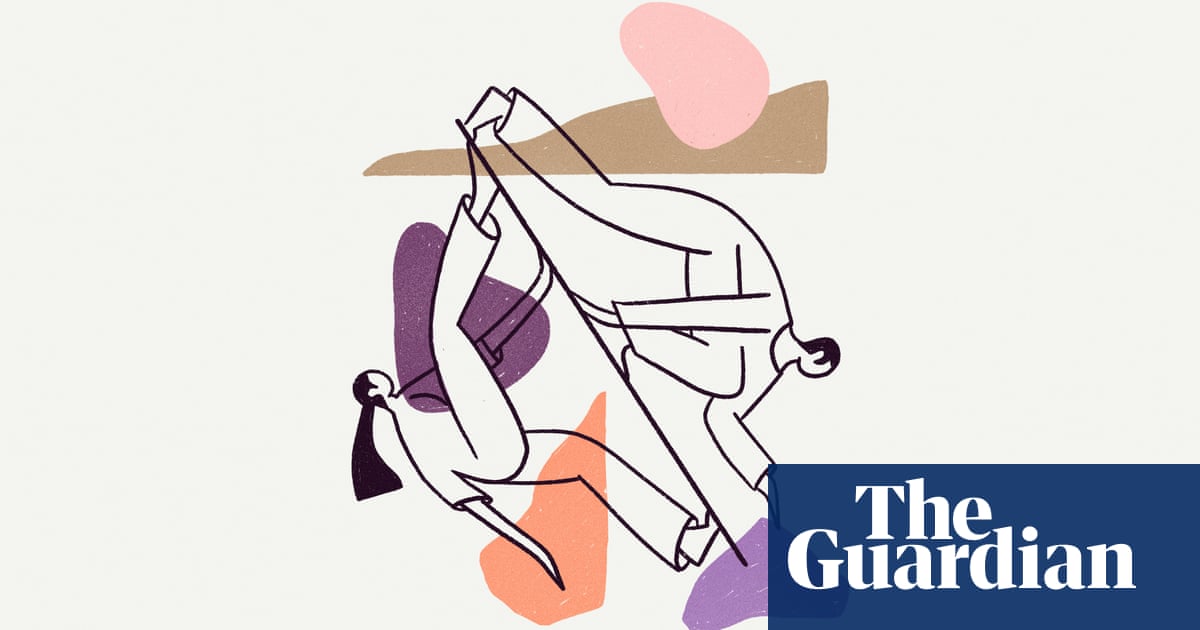Psychologists such as Steven Pinker and Jordan Peterson argue patriarchal society is the natural order, but it is a relatively new development, writes Gaia Vince

Fathers are happier, less stressed and less tired than mothers, finds a study from the American Time Use Survey. Not unrelated, surely, is the regular report that mothers do more housework and childcare than fathers, even when both parents work full time. When the primary breadwinner is the mother versus the father, she also shoulders the mental load of family management, being three times more likely to handle and schedule their activities, appointments, holidays and gatherings, organise the family finances and take care of home maintenance, according to Slate, the US website. (Men, incidentally, are twice as likely as women to think household chores are divided equally.) In spite of their outsized contributions, full-time working mothers also feel more guilt than full-time working fathers about the negative impact on their children of working. One argument that is often used to explain the anxiety that working mothers experience is that it and many other social ills is the result of men and women not living as nature intended. This school of thought suggests that men are naturally the dominant ones, whereas women are naturally homemakers.
But the patriarchy is not the natural human state. It is, though, very real, often a question of life or death. At least 126 million women and girls around the world are missing due to sex-selective abortions, infanticide or neglect, according to United Nations Population Fund figures. Women in some countries have so little power they are essentially infantilised, unable to travel, drive, even show their faces, without male permission. In Britain, with its equality legislation, two women are killed each week by a male partner, and the violence begins in girlhood: it was reported last month that one in 16 US girls was forced into their first experience of sex. The best-paid jobs are mainly held by men; the unpaid labour mainly falls to women. Globally, 82% of ministerial positions are held by men. Whole fields of expertise are predominantly male, such as physical sciences (and women garner less recognition for their contributions they have received just 2.77% of the Nobel prizes for sciences).
According to a variety of high-profile figures (mainly male, mainly psychologists), bolstered by professorships and no shortage of disciples, there are important biological reasons for why men and women have different roles and status in our society. Steven Pinker, for instance, has argued that men prefer to work with things, whereas women prefer to work with people. This, he said, explains why more women work in the (low-paid) charity and healthcare sector, rather than getting PhDs in science. According to Pinker, The occupation that fits best with the people end of the continuum is director of a community services organisation. The occupations that fit best with the things end are physicist, chemist, mathematician, computer programmer, and biologist.
Others deny societal sexism even exists, insisting that the gender roles we see are based on cognitive differences spoiler: men are more intelligent. The people who hold that our culture is an oppressive patriarchy, they dont want to admit that the current hierarchy might be predicated on competence, Jordan Peterson has said, for instance. His reasoning suggests that women would be happier not railing against it but instead observing their traditional gender roles. Such theories have been demolished by a range of scholars, including neuroscientist Gina Rippon and psychologist Cordelia Fine.
There are certainly biological differences between men and women, from their sexual anatomy to hormones. Yet even this isnt as clear cut as it seems. For instance, around one in 50 people may be intersex with some sort of atypical chromosomal or hormonal feature thats about the same as the proportion of redheads. Mens brains are on the whole slightly larger than womens, and scans reveal some differences in the size and connectedness of specific brain regions, such as the hippocampus, in large samples of men and women.

And yet, only a tiny percent (between 0 and 8%) of individual men and women turn out to have a typically male or female brain. Most people are somewhere in the middle, and whether someone has skills for maths, spatial awareness, leadership or any other gendered attribute can not be predicted from knowing their sex, as multiple studies have shown. Anatomically and cognitively, there are more differences within the two sexes than between them.
There is no evidence that women are any less capable of the jobs and social positions that men predominantly hold. When women are given the opportunity to hold male roles, they show themselves to be equally proficient. Researchers recently calculated that it was bias against women, not under-representation, that accounts for the gender distribution seen in the Nobel prizes, for instance. Women are not less intelligent, less logical or less able than men. The roots of patriarchy, in other words, cannot be found in our biology.
Male supremacy, for all its ubiquity, is surprisingly recent. Theres compelling evidence that patriarchal societies date back less than 10,000 years. Humans probably evolved as an egalitarian species and remained that way for hundreds of thousands of years. One clue is in the similar size of human males and females, which show the least disparity of all the apes, indicating that male dominance is not the driving force in our species. In fact, equality between the sexes in our early ancestry would have been evolutionarily beneficial. Parents who were invested in both girls and boys (and the grandchildren from both) gave our ancestors a survival advantage, because this fostered the critical wider-ranging social networks they depended on to exchange resources, genes and cultural knowledge.
Today, hunter-gatherer societies remain remarkable for their gender equality, which is not to say women and men necessarily have the same roles, but there is not the gender-based power imbalance that is almost universal in other societies. In contemporary hunter-gatherer groups, such as the Hadza people of Tanzania, men and women contribute a similar number of calories, and both care for children. They also tend to have equal influence on where their group lives and who they live with.

Matriarchal societies may also have been more common in our ancestral communities. Strong female relationships would have helped to glue a larger community together, and being able to rely on friends to babysit would have given our ancestors the time and energy to support the group through food provision and other activities. Indeed, there are several societies where matriarchy is the norm Ive visited some of them, including the cocoa farming Bribri people of Costa Rica, and the rice farming Minangkabau of Sumatra, Indonesia. These are communities in which women are the landowners and decision makers.
In other words, humans are not genetically programmed for male dominance. It is no more natural for us to live in a patriarchy than in a matriarchy or, indeed an egalitarian society. In the same way, it is just as natural for humans to eat a paleo diet as it is to eat bubblegum-flavoured candyfloss; to have sex as a man and a woman or as three men; to live in a straw hut or in a glass bubble beneath the ocean. This is because, unlike other animals, we are cultural beings for our species, culture is our nature, and key to understanding our behaviours and motivations.
Social, technological and behavioural invention are part of our nature part of what it means to be human. We are driven by culture more than instinct. And our culture influences our environment and our genes. Our extraordinarily flexible, cumulative culture allows us to make ourselves even as we attribute our successes and failings to our genes.
Thats not to say that just because a cultural trait has emerged it is necessarily good. Patriarchal norms, for instance, are damaging to our health and our societies, increasing death and suffering, and limiting humanitys creative potential. We are, though, neither slaves to our biology nor our social norms even if it can feel that way.
Human cultural conditioning begins at birth, indeed, social norms even have an impact before birth: one study found that when pregnant women were informed of the sex of the baby they were carrying, they described its movements differently. Women who learned they were carrying a girl typically described the movements as quiet, very gentle, more rolling than kicking; whereas those who knew they were carrying a boy described very vigorous movements, kicks and punches, a saga of earthquakes.

Many of the ideas we consider universally held are simply the social norms in our own culture. Libert, galit, fraternit may be values worth dying for in France, for instance, but personal freedom is not considered important or desirable for other societies, which prioritise values such as purity instead. Consider the idea of responsibility. In my culture, if you deliberately hurt a person or their property this is considered a much worse crime than if you did it by accident, but in other cultures, children and adults are punished according to the outcome of their actions intentionality is considered impossible to grasp and therefore largely irrelevant.
The biological differences between males and females, or indeed between ethnic groups, tell us nothing about how intelligent, empathetic or successful a person is. Modern humans are 99.9% genetically identical. Although we have expanded far beyond our tropical evolutionary niche over tens of thousands of years, we have not speciated we have not even diversified into different subspecies. Our ancestors have not needed to make dramatic biological adaptations to the very different environments we live in, because, instead, we culturally evolved and diversified into a complexity of differently adapted cultures, each with their own social norms.
It is our cultural developing bath, not our genes, that profoundly changes the way we think, behave and perceive the world. Studies comparing the neural processing of populations of westerners and East Asians, for example, show that culture shapes how people look at faces (westerners triangulate their gaze over eyes and mouth, whereas East Asians centralise their focus). Language reveals our norms and shapes the way we think. Children who speak Hebrew, a strongly gendered language, know their own gender a year earlier than speakers of non-gendered Finnish. English speakers are better than Japanese speakers at remembering who or what caused an accident, such as breaking a vase. Thats because in English we say Jimmy broke the vase, whereas in Japanese, the agent of causality is rarely used; they will say: The vase broke. The structures that exist in our language profoundly shape how we construct reality and it turns out that reality, and our human nature, differ dramatically depending on the language we speak. Our brains change and our cognition is rewired according to the cultural input we receive and respond to.
Many of our social norms evolved because they improve survival, through group cohesion, for instance. But social norms can also be harmful. There is no scientific basis for the belief that a persons skin colour or sex has any bearing on their character or intelligence. However, social norms can affect a persons behaviour and their biology. Social norms that classify particular groups to the bottom of a social hierarchy encourage society to collude with that positioning and those people do worse in outcomes from wealth to health, strengthening the norm. A major study, by researchers at Berkeley, of 30,000 American shift workers found that black, Hispanic and other minority workers particularly women are much more likely to be assigned irregular schedules, and the harmful repercussions of this were felt not just by them but also by their children, who fared worse.
The danger of ascribing genetic and biological bases for our actions is that individuals and groups are not given equal opportunities in life, and they suffer. It is, after all, very convenient to believe that the poor are feckless and undeserving, morally weak or stupid, rather than casualties of a deeply unfair systemic bias. Equally, its much more appealing to think of ones own successes as down to some sort of innate personal brilliance rather than luck and social position.
If we persist in the idea that there is a natural a best way to be a human, then we blind ourselves to the great diversity of potential ways of being, thinking and feeling, and impose social limitations on those whose life choices are no less legitimate than ours. Its worth noting, though, that many norms that were once believed to be set in biological stone or ordained by gods have been changed by societies sometimes remarkably quickly. If we invented it, we can alter it. An accepted natural state that has existed for millennia can be changed in mere months.
Transcendence: How Humans Evolved Through Fire, Language, Beauty, and Time by Gaia Vince is published by Allen Lane. To order a copy go to guardianbookshop.com. Free UK p&p on all online orders over 15.


Recent Comments